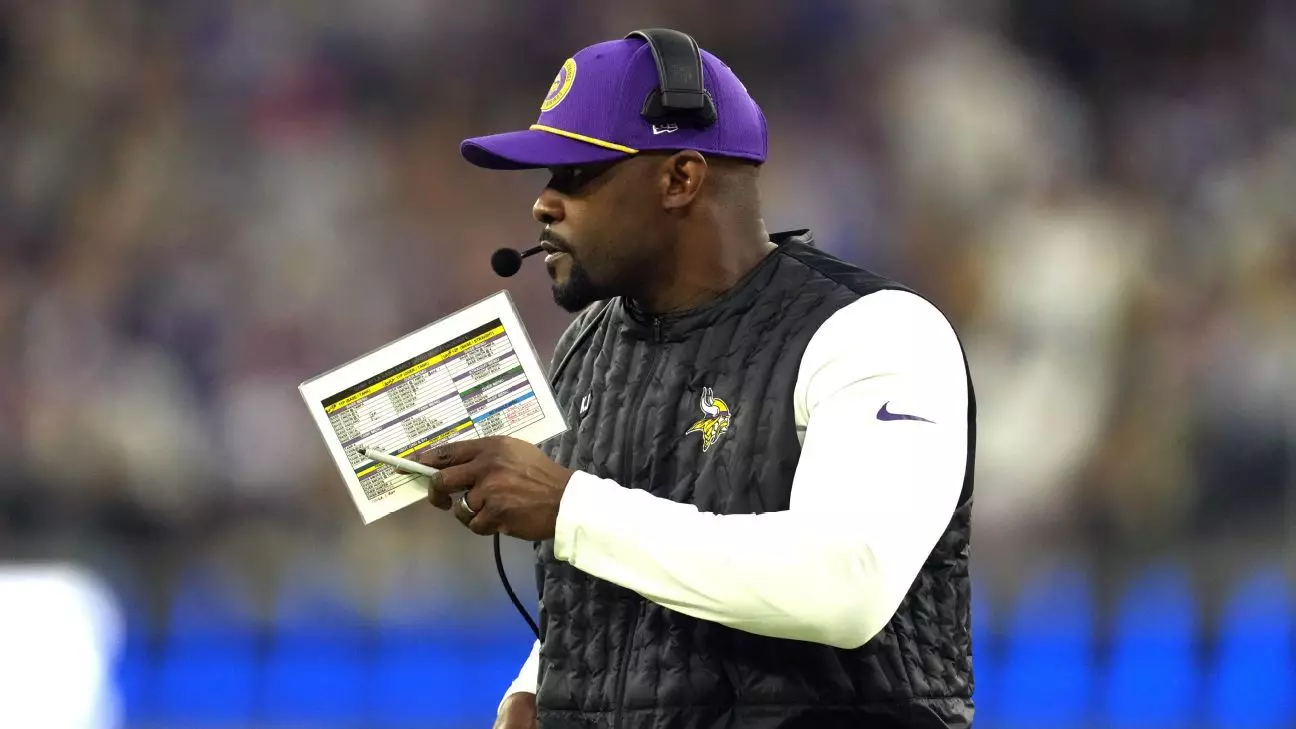The recent judicial decision against the NFL’s arbitration process marks a pivotal moment in the ongoing fight for racial equality within professional sports. For years, the league has operated under a facade of fairness, claiming that its internal processes uphold justice when, in reality, they often serve as barriers to genuine accountability. The Second Circuit Court’s assertion that the NFL’s arbitration clauses are fundamentally flawed underscores an uncomfortable truth: the league’s internal mechanisms are meticulously designed to shield itself from meaningful scrutiny, especially regarding allegations of systemic discrimination. This ruling not only opens the door for Brian Flores and other Black coaches to pursue their claims openly but also challenges the legitimacy of the NFL’s long-standing practices.
Critically examining this decision reveals the inherent conflicts of interest embedded within the league’s arbitration system. Allowing Commissioner Roger Goodell—the league’s highest authority—to serve as an arbitrator conflates executive power with dispute resolution, creating a clear bias that undermines the credibility of any impartial judgment. The court’s language exposes the league’s sham negotiations, describing the arbitration process as “arbitration in name only,” fundamentally incompatible with established legal standards. This critical legal judgment shatters the illusion that the NFL’s internal processes deliver genuine justice, shining a spotlight on the need for external oversight that genuinely protects fairness and transparency.
The Broader Implications for Workers and Justice
The significance of this court ruling extends well beyond the football field. Flores’s case symbolizes a broader societal battle against institutionalized bias and injustice. For years, the NFL has operated in a bubble that protected its reputation at the expense of vulnerable individuals challenging its systemic flaws. By dismantling the league’s biased arbitration scheme, the courts are sending a clear message: accountability cannot be contained within closed-door NFL hearings that favor the status quo.
This decision champions the rights of workers—regardless of their industry—to fair justice systems. When powerful organizations shield themselves behind ostensibly neutral procedures that are, in fact, rigged, it perpetuates inequality and discourages victims from speaking out. The court’s stance confirms that justice should not be compromised by corporate interests cloaked in legal formalities. Instead, genuine dispute resolution should involve independent and transparent processes, ensuring that claims of discrimination are judged with fairness and moral integrity.
Flores’s unwavering resolve underscores this shift. Despite facing the risk of career devastation, he prioritized exposing an entrenched culture of racial bias. His willingness to challenge a billion-dollar league reflects a moral awakening—a recognition that progress demands sacrifice and perseverance. This case exemplifies how individual courage can catalyze institutional change, inspiring others to demand transparency and equality across various sectors.
The Future of Racial Equity in Sports and Beyond
The court’s decision ignites hope that systemic racism, long tolerated in the shadows of professional sports, will eventually be addressed more honestly and effectively. The NFL’s resistance—epitomized by spokesperson Brian McCarthy’s vow to seek further review—reveal the league’s hesitation to confront its flaws head-on. However, hope persists that increased legal scrutiny and public awareness will force the league to reevaluate its commitments to fairness.
This case also challenges other powerful institutions to scrutinize their own internal justice mechanisms. Just as the NFL has tried to insulate itself from accountability, countless organizations operate with similar biases—safeguarding their interests at the expense of fair treatment for marginalized groups. Flores’s legal fight serves as a blueprint for activism that demands structural reforms rooted in justice, not bureaucratic convenience.
Looking ahead, a future where talent and effort are the sole criteria for opportunity is conceivable, but it requires confronting and dismantling deeply ingrained racial biases. The court’s acknowledgement of the NFL’s flawed arbitration process marks a step toward that future—one where transparency, fairness, and accountability are not mere ideals but realities. As this case develops, it offers a powerful reminder: systemic change is achievable when individuals stand firm against injustice, challenging the status quo for a better, more equitable tomorrow.

